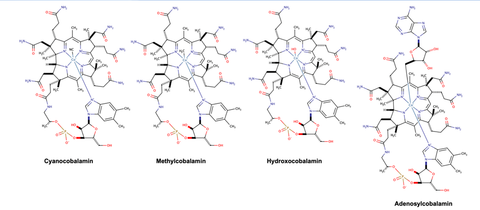What are vitamins and their different solubility types?
Vitamins are a group of essentialmicronutrients that arerequiredfor maintaining normal cell function, growth, reproduction, development and various metabolic functions in our bodies.Although vitamins are needed in very small quantities, our diet must contain them so that the above mentioned critical functions can be seamless.Generally, vitamins are classified as fat-soluble or water-soluble types.The 13 essential vitamins are listed below.
Of these vitamins, eight of them belong to the vitamin B class often referred to as B complex, which includes vitamins B1, B2, B3, B5, B6, B7, B9 and B12. Vitamin B complex together with vitamin C are known as the water-soluble vitamins which are typically peed out when you get an excess of them (so considered less concerning when taking larger doses), while vitamins A, D, E and K are the fat-soluble vitamins which require you to be more careful so as not to get an excess build-up of them in your body.







